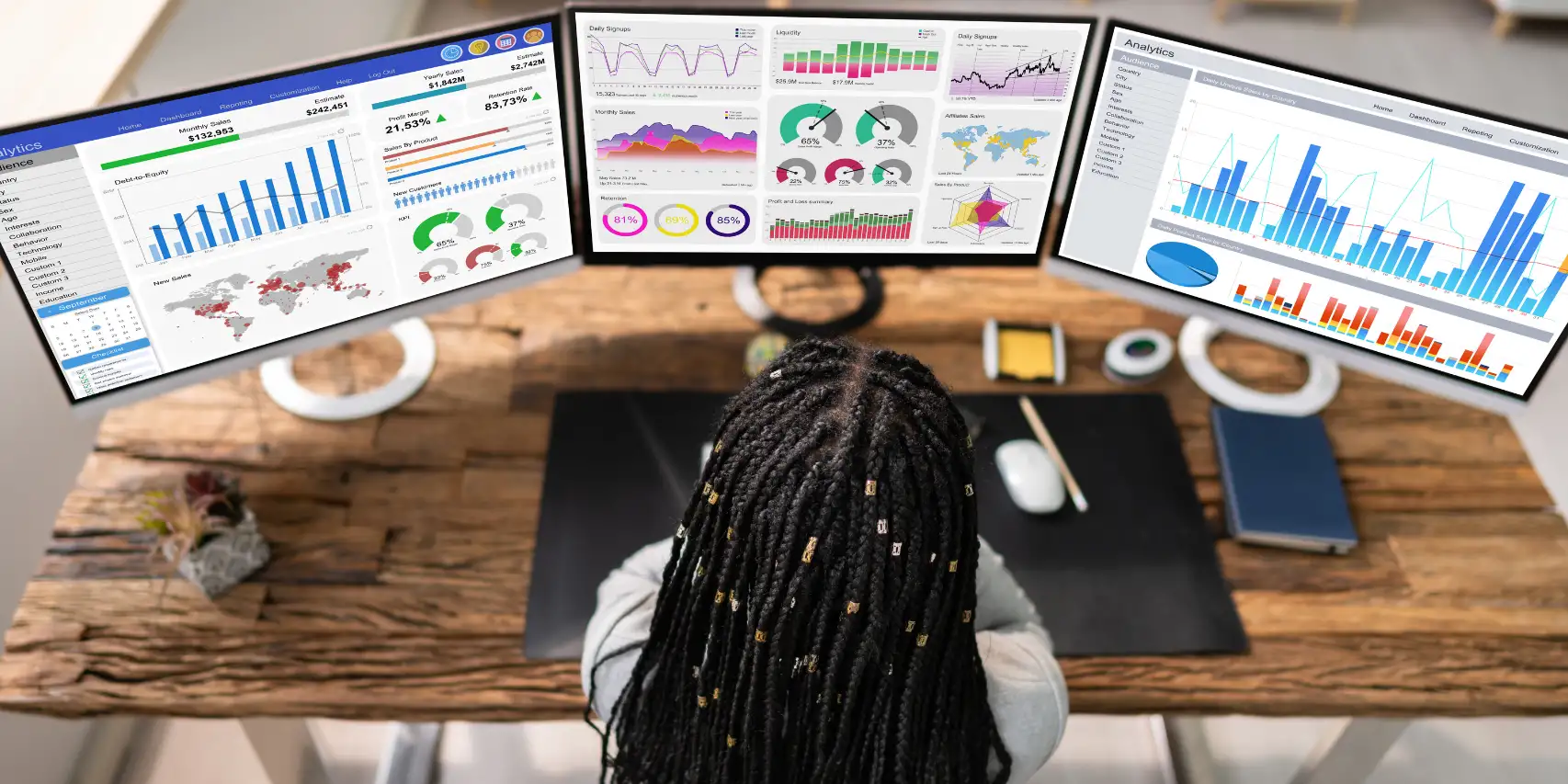Customer knowledge is the key to staying competitive and improving market, product and target growth.... Nearly 70% of companies surveyed consider customer knowledge to be a top priority. However, only 25% have quick and easy access to customer data for use in decision-making, according to a Forrester study.
The use of relevant tools for collecting, analyzing and interpreting customer data is therefore essential. Understanding customer behavior, preferences and needs enables you to better target and personalize your content. This is known as data marketing.
How to optimize customer knowledge using Data Driven Marketing?
Before going into the details of the tools available to improve customer knowledge, let's define the term.
Customer knowledge: definition
Customer knowledge in B2B refers to all the information and data that companies collect on their customers in order to better understand their behavior, preferences and needs. Customer knowledge enables companies to better target their offers and communications, improve the customer experience and build customer loyalty. Customer insight is based on the collection and analysis of different data sources, such as demographic, transactional, behavioral and social data.
Companies can use various technologies such as data analysis,artificial intelligence and machine learning to extract relevant insights from this data and improve their understanding of customers. Using these tools amounts to data-driven marketing.
Customer knowledge has become a major challenge for companies seeking to adapt to changes in consumer purchasing behavior and offer a personalized, differentiated customer experience.
Business intelligence tools
A Business Intelligence (or BI) tool is a software application designed to collect, analyze and present data to support decision-making processes within an organization. These tools offer the opportunity to extract valuable information from large quantities of data (Big Data), from a variety of sources. This makes it easier to understand performance, identify trends and make data-driven decisions. Well-known tools include Tableau Software, Microsoft Power BI and QlikSense.
Classic tools for improving customer knowledge
Knowing your customer is the sinews of war. Fortunately, there are various tools available to collect data and better analyze and understand different customer profiles.
CRM (Customer Relationship Management)
CRM is an indispensable tool for any company wishing to manage its customer relations effectively. It stores all customer data, including contact information, past interactions, previous purchases and personal preferences. Thanks to a CRM, companies can follow customers throughout their journey and offer them personalized service. Today, owning a CRM is no longer enough.
360° CRM
CRM 360 is a cross-functional CRM, shared by all customer-facing departments: sales, customer service, marketing, finance and communications. Its uses are far more extensive than those of traditional CRM. It can be used to manage campaigns, digital customer relations centers, automated quotations and steering. In addition to 360° CRM, there are two other CRMs we're particularly interested in: analytical CRM and M-CRM, also known as Mobile CRM.
Analytical CRM
Analytical CRM focuses on the analysis of customer data to obtain actionable information and improve business decisions. It uses data analysis techniques to extract information from the CRM. This qualified data enables companies to better understand customer preferences and behaviors, identify trends, predict future behavior to the maximum extent possible, and make strategic decisions based on this data.
Mobile CRM
Mobile CRM refers to all applications or tools developed for mobile devices (smartphones or tablets), enabling CRM activities to be managed remotely or on the move. Among its advantages: it's responsive and offers features such as synchronization with the smartphone.
Data management platforms (DMP)
DMPs (Data Management Platforms) are data collection tools that enable companies to gather customer information from a variety of channels, such as social networks, e-mail, mobile applications and websites. DMPs also enable customer data to be analyzed and segmented for more targeted marketing campaigns.
Among the best data management tools on the market, the My-Analytics by Ellisphere data visualization tool stands out. It enables you to identify new sources of prospecting, analyze the performance of customer segments, readjust your sales organization, and export ultra-targeted prospecting files.
Predictive analysis
Predictive analytics uses machine learning algorithms to analyze customer data and provide predictions about their future behavior. This technique can help companies anticipate customer needs and offer more relevant products and services.
PRM, or Prospect Relationship Management, is one of the most advanced tools available. It's a software package focused on prospect relationship management, with several objectives: optimizing the collection of information on prospects, qualifying this data, and transforming these prospects into customers, notably through marketing operations carried out on social networks.
Feeling analysis
Sentiment analysis is a more recent technique offering the possibility of understanding how customers feel about a brand or product by analyzing their language, comments and posts on social networks. This analysis can help companies adapt their strategy according to how customers react.
The CDP, or Customer Data Platform, is a tool for creating a unique customer database, based on online and offline information. More than a simple sentiment analysis, the CDP extracts highly accurate customer files, and processes and exploits a vast amount of data. The aim of this customer knowledge tool is then to segment and target customers precisely for marketing campaigns, or to improve customer relations.
Strengthen data management and optimize customer knowledge
Data quality at the service of customer knowledge
Data management applications like Ellisphere Connect
Get to know your customers better, thanks to the Ellisphere Connect on-board application. Compatible with Salesforce CRM, it guarantees professionals up-to-date customer and lead data. The application provides access to the following functions:
- Searching for companies in France or abroad,
- Direct integration of data into customer and lead files,
- An alert log to keep you informed of all events affecting CRM companies,
- Data visualization of inter-company links,
- Complete parameterization of data update rules, etc.
What kind of data do you collect to get to know your customers better?
First party Data
This is the company's internal data (billing, contacts, contracts, user or customer browsing data). It is collected directly from the audience or customers.
Second Party Data
This is data from another company, made available as part of a partnership.
Third-party data
These are third-party data purchased from a specialized supplier.


